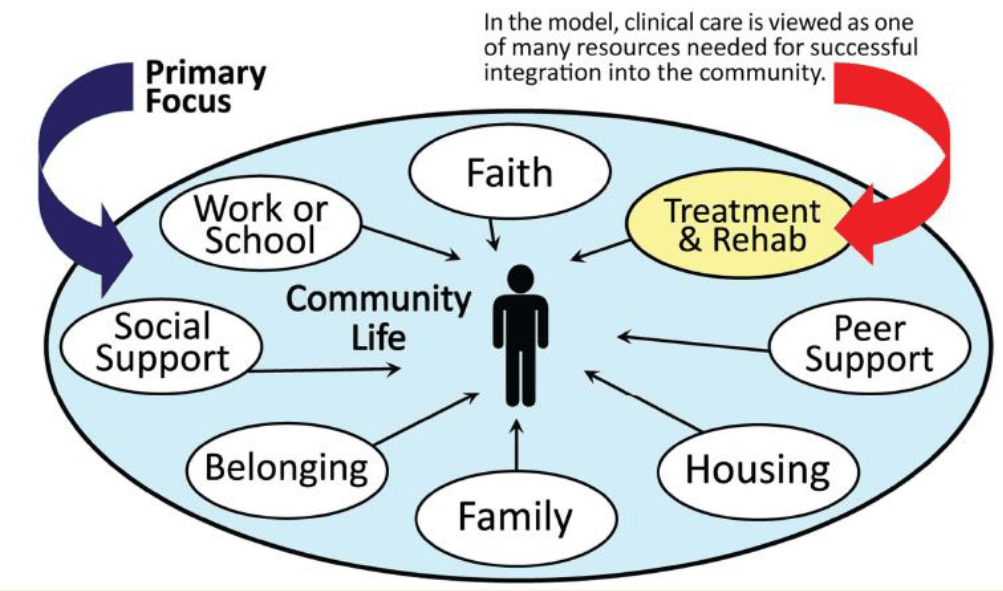Recovery Oriented Systems of Care (ROSC) Model
At the community level, the Opioid Care Community Coordination system supports the development and management of a central directory of available community services and resources in the region. This includes allowing community based organizations to use the system to maintain in real time, up to date information about their services and capacities (such as available beds or program open slots). This system also supports automated referrals between community organizations that is used to close the loop on referrals. At the personal level, the OCC system is centered on the development of a personalized success pathway that is based on the unique needs and preferences of an individual combined with evidence based best practice protocols. This pathway is then shared in a secure manner with appropriate mental and substance use disorder privacy controls to allow authorized support team members to work together to help support the personal success pathway. The OCC system includes a built-in data integration engine to collect the clinical and non-clinical data from existing and future systems in the community.
Specific uses of the OCC system include: supporting use of assessments (such as the Communities that Care Risk and Protective Factor Youth Survey and the SBIRT assessment), supporting automated workflows to help select and enroll individuals into treatment and recovery programs, supporting automated transitions of individuals in treatment and recovery programs, supporting real time tracking of available openings in treatment and recovery programs, supporting the real-time engagement of clients using secure, two-way texting to encourage them to adhere to the proposed recovery pathway for them, supporting the use of telehealth enabled services, and supporting interfacing with other information systems such as hospital systems (emergency room admissions), drug court systems, law enforcement systems, and the state’s prescription drug monitoring system.
The OCC system enables a community to collect valuable information than can be used to identify gaps in care and evaluate performance of programs and services. The data can also be used to meet data reporting requirements for local and state agencies and granting agencies.
Source: SAMSHA https://attcnetwork.org/centers/global-attc/recovery-oriented-systems-care-rosc

